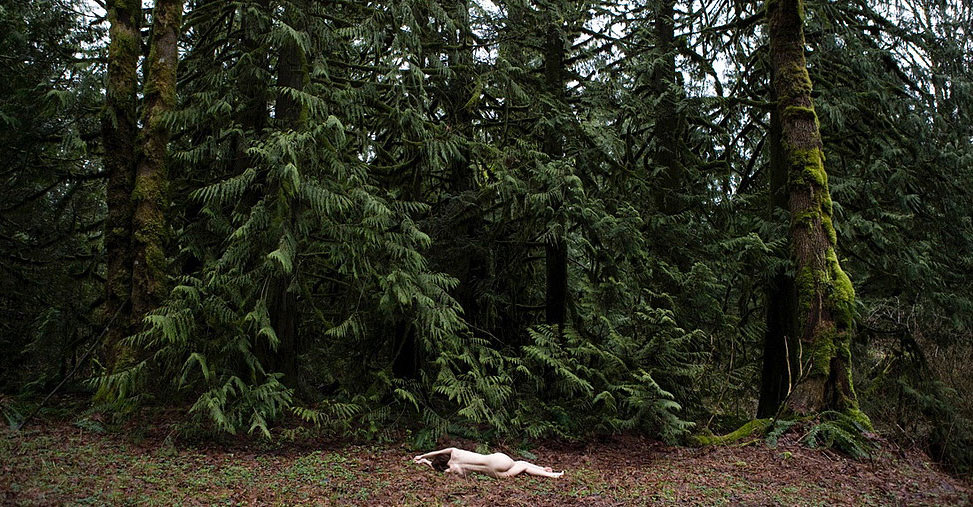Artificial Life: Debating Medical Modernity
 April 19-21, 2018 • UC Riverside, INTS 1113
April 19-21, 2018 • UC Riverside, INTS 1113
Artificial Lives: Debating Medical Modernity is a collaboration among Juliet McMullin (School of Medicine), Sherryl Vint (Media and Cultural Studies) and Fuson Wang (English). This conference is generously supported by the UCR Center for Ideas and Society, the Wellcome Trust, the School of Medicine, the Speculative Fiction and Cultures of Science Program at UCR, and the journal Science Fiction Studies.This conference is organized in partnership with Artificial Lives: Imagining Life, Enhancing Life, Engineering Life, a conference held in the UK in November, organized by Peter Boxall.
Artificial Lives is a project that identifies a number of connected developments in the sciences, social sciences and the arts, in relation to the production of artificial life. Advances in the fields of medical sciences and information technology have rendered new forms of material and virtual lives possible. The social sciences and arts are re-imagining what we understand by “life”, altering how the concept of life is visualised and represented. In order to explore these ideas, we are holding a conference titled Artificial Lives: Debating Medical Modernity in late April 2018. The conference will be held at the University of California, Riverside and is open to researchers from all disciplines.
Program
Keynote Speakers
Peter Boxall – “Mind: Matter: Artifice”
Peter Boxall is a Professor of English at the University of Sussex (UK) and a co-organization, with Sherryl Vint, of the Artificial Lives project. His research focuses on the relationship between aesthetics and politics in modernist and contemporary writing. His publications include Don DeLillo: The Possibility of Fiction (2006), Since Beckett: Contemporary Writing in the Wake of Modernism (2011), Twenty-First Century Fiction (2013), and The Value of the Novel (2015), and he is the co-editor of volume 7 of the Oxford History of the Novel. He edits the journal Textual Practice and has edited a number of other books on modernist and contemporary writers. His current research project is titled The Prosthetic Imagination: A History of the Novel as Artificial Life.
Lisa Diedrich – “General Practices: Illness and Disability in Action”
Lisa Diedrich is Professor of Women’s, Gender, and Sexuality Studies at Stony Brook University. Her research and teaching interests include critical medical studies, disability studies, feminist science studies, and interdisciplinary feminist and queer theories and methodologies. She is the author of Indirect Action: Schizophrenia, Epilepsy, AIDS, and the Course of Health Activism (2016) and Treatments: Language, Politics, and the Culture of Illness (2007), and the editor (with Victoria Hesford) of Feminist Time Against Nation Time (2008).
François-Joseph Lapointe
François-Joseph Lapointe is an artscientist from Montréal (Canada) with a PhD in evolutionary biology (1992) and a PhD in dance and performance studies (2012). As a scientist, he has published over 100 papers ranging from molecular systematics and population genetics to metagenomics. As an artist, he applies biotechnology as a means of dance composition, and has created the field of choreogenetics. For his most recent project, he is currently sequencing his microbiome (and that of his wife) to produce metagenomic self-portraits (or microbiome selfies). His work as a bioartist has been exhibited in Canada, France, Germany, Denmark, Australia and the USA.
David Wills – “‘Blood Will Out’: The Artificial Flow of Time”
David Wills is professor of French and Comparative Literature at Brown University. He is the author of 3 books on the originary technicity of the human (Prosthesis, 1995; Dorsality, 2008; Inanimation, 2016), as well as other works on deconstruction, Derrida and film theory (with Peter Brunette), Pynchon (with Alec McHoul), and the forthcoming Killing Times: The Temporal Technology of the Death Penalty. He has also translated a number of works by Jacques Derrida.
Allison Hedge Coke
Allison Hedge Coke is a Professor of Creative Writing at UCR. She is the 2016 Library of Congress Witter Bynner Fellow, and the author of numerous books including: Streaming (Pen Southwest Book Award in Poetry, Wordcrafter of the Year Award, Lifetime Achievement Award NWCA, IPPY Medal); Off-Season City Pipe (labor volume, Wordcraft Writer of the Year in Poetry) and Dog Road Woman (American Book Award); Blood Run (free verse-play regarding the Indigenous mound site in Iowa and South Dakota, Best Seller in US & UK). She has has been an invitational poet-writer in Ireland, Scotland, China, Canada, Mexico, Argentina, Colombia, and Venezuela. She has been instrumental in creating literary venues and programming with a special focus on Sandhill Cranes, the environment, migration, labor, incarcerated youth, and underserved communities, with career devotion to serving Indigenous communities
Jon Mee – “The Doctor that Blushed: ‘mental ferriarism’ and ‘living machines’ in the early industrial revolution, 1780-1820”
Jon Mee came to York in 2013 after seven years at the University of Warwick as Professor of English and over a decade in the English Faculty at Oxford where He was Margaret Candfield Fellow in English at University College (the one that threw Shelley out for atheism 200 years ago) and Professor of Literature of the Romantic Period. Prior to moving to Oxford, He was a Senior Lecturer at the Australian National University. He did his undergraduate degree at the University of Newcastle-upon-Tyne followed by a PhD at Cambridge. I was a Junior Research Fellow at Jesus College, Oxford, before I moved to Australia in 1991.